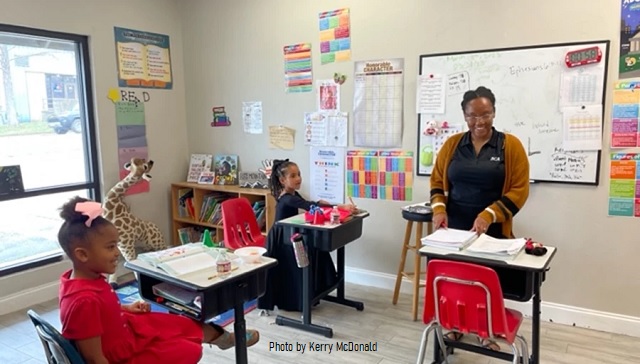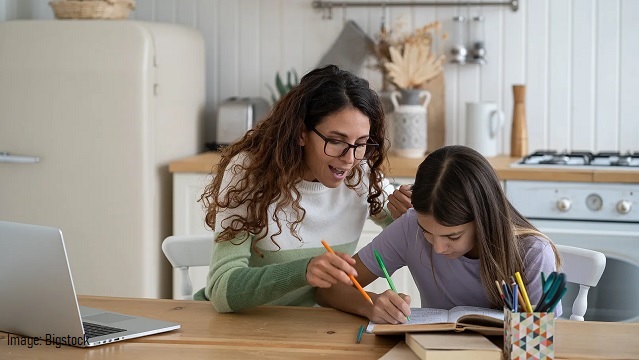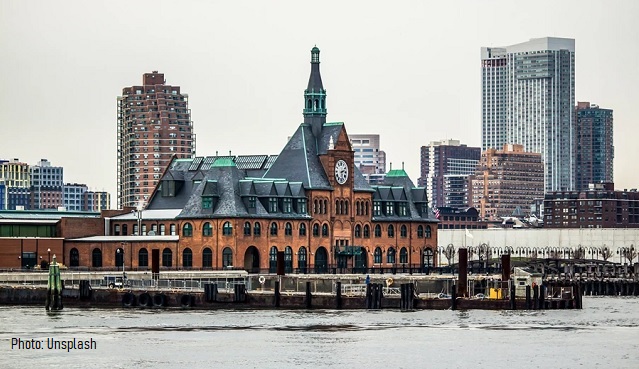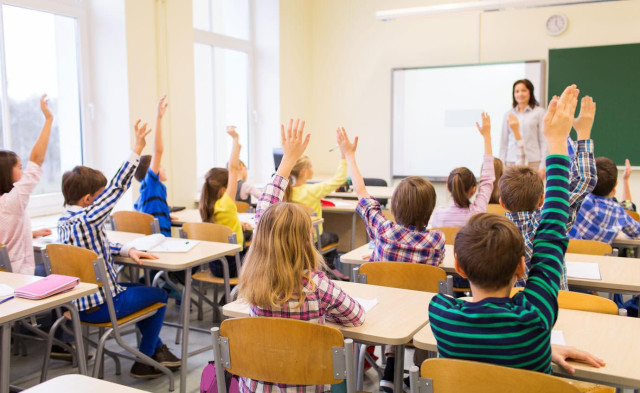How Entrepreneurs Are Expanding Education Options For Families in Texas

“Parents are the best advocates of their children and ultimately know what type of schooling is best from an academic, social and moral perspective,” said Braveheart founder Chrystal Bernard.
In early 2020, Chrystal and Joshua Bernard decided that they would begin homeschooling their four young children at the start of the following school year. Their two oldest children were completing first grade and pre-kindergarten, respectively, at a traditional private school in the greater Fort Worth, Texas area, but the Bernards were drawn to homeschooling’s more personalized, family-centered educational approach.
The school shutdowns later that year accelerated their homeschooling plans, and the Bernards became increasingly convinced that more learner-centered education was the path forward—both for their own children as well as for others in their local community. “Homeschooling enabled us to connect more as a family and helped our two eldest children skyrocket in their academics, drawing other people to our method of schooling,” said Chrystal, who taught high school mathematics in Texas public schools before launching her own CPA firm.
During the 2020/2021 school year, the Bernards heard from a growing number of parents who wanted a more personalized, accessible, faith-based educational option. “As pastors of our local church, we saw the desires of people in our community who wanted a Christian education with low student-teacher ratios without the hefty tuition prices of the local private schools,” said Chrystal. “Additionally, with the rise of virtual learning due to the COVID-19 pandemic, we saw how some students were falling through the cracks.”
In the fall of 2021, the couple founded Braveheart Christian Academy, a pre-kindergarten to 7th grade microschool in Arlington, Texas that emphasizes individualized, mastery-based learning with a focus on character development. Some of Braveheart’s teachers taught in the local public schools but were attracted to the new school’s smaller, more holistic learning environment. “Instead of placing students in a box, education is brought to their level,” said Chrystal, who uses assessment tests to evaluate each child’s skill level upon enrollment and then adapts the curriculum accordingly. “We had one child who entered school as a fourth grader by age but who performed at a first grade level. Now, after a school-year-and-a-half with us, that student has nearly caught up academically to his fifth grade peers,” she told me during my recent visit to Braveheart.
With an annual tuition of about $7,000, Braveheart is significantly lower in cost than most traditional private schools in the area, but it is still financially out of reach for many families. “Cost is the major barrier,” said Chrystal, who hears often from parents who wish to enroll their children but can’t afford it.
The Bernards do what they can to lower the tuition burden. They received a microgrant from the VELA Education Fund, a national philanthropic non-profit that provides small amounts of funding to education entrepreneurs who are creating individualized, out-of-system learning models. One local VELA partner, The Miles Foundation, recently dedicated $1 million to support the rising number of founders in Tarrant County. “By investing in everyday education entrepreneurs, we can create real change in the education system,” said Grant Coates, president of The Miles Foundation.
In addition to philanthropy, the Bernards also rely on personal fundraising efforts to reduce costs to parents, but Braveheart is still financially inaccessible to many who want it. “One parent was actually weighing whether she should pay her rent or the school tuition,” said Chrystal, acknowledging that providing a quality education for their children is a top priority for many families.
Last week, Texas became the latest in a string of states to introduce school choice legislation that would enable education funding to follow students to whichever school their parents choose. The bill would provide an annual education savings account up to $8,000 for each Texas student to use toward tuition, books and supplies. This amount would more than cover the cost of Braveheart and similar schools across the state, including the new ones that have been quickly emerging over the past three years of education disruption.
Chrystal is a strong supporter of these school choice initiatives. “Every Texas family should be afforded the opportunity to attend their school of choice, including private schools,” she said. “For many families, the sole barrier is the financial requirement needed to do so. Parents are the best advocates of their children and ultimately know what type of schooling is best from an academic, social and moral perspective.”
The Bernards will continue their efforts to make Braveheart more accessible to the families that want it, but Chrystal believes that statewide education choice policies will be most empowering. “The Texas school choice bill would give more freedom and leverage to parents to make the best schooling decision for their children,” she said.
This article was originally published at Forbes.com. It has been reprinted with permission.
AUTHOR
Kerry McDonald
Kerry McDonald is a Senior Education Fellow at FEE and host of the weekly LiberatED podcast. She is also the author of Unschooled: Raising Curious, Well-Educated Children Outside the Conventional Classroom (Chicago Review Press, 2019), an adjunct scholar at the Cato Institute, education policy fellow at State Policy Network, and a regular Forbes contributor. Kerry has a B.A. in economics from Bowdoin College and an M.Ed. in education policy from Harvard University. She lives in Cambridge, Massachusetts with her husband and four children. You can sign up for her weekly email newsletter here.
RELATED ARTICLES:
More Than One Million Students Left District Schools. How Do We Know They’re Learning?
New York City’s Not-So-Secret World of Low-Cost Private Schools
Why Can’t This Retired US Navy Officer and Engineer Open a Private School in Nevada?
EDITORS NOTE: This FEE column is republished with permission. ©All rights reserved.





